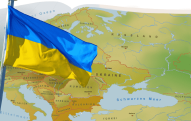Lauterbach wants clear vaccination recommendations for all age groups
German Health Minister Karl Lauterbach has called for "clear recommendations" even for people under 60 or 70 on whether and in what cases a fourth Corona vaccination is advisable. "Of course, younger people also want to know what they should do. We now need clear recommendations for all age groups," the SPD politician told the newspapers of the Funke media group.
"We should not just say what the over-70s should do," Lauterbach explained. "We must also have an answer for the 40-year-old. Should he definitely not get vaccinated? Or only in exceptional cases, for example, with very many contacts at work? Or only if the family doctor recommends it? You need a message for every age." At the latest, when the new vaccines adapted to the Omicron variant are available, "there should be clear announcements for the under-60s as well.
The Standing Commission on Vaccination (Stiko) currently recommends a fourth Corona vaccination only for people over 70 years of age and for some risk groups. Leading EU authorities had advocated a second booster vaccination for everyone over 60. Lauterbach, on the other hand, had advocated fourth vaccinations on a broader front, even for people under 60 - after consulting with their doctor.
In view of criticism of these inconsistent statements, the goal had been issued in July to better coordinate communication on Corona vaccinations. Lauterbach and Stiko Chairman Thomas Mertens agreed to set up a pandemic working group within the Stiko. This working group is to ensure continuous communication with the ministry during the discussion and consultation phase for a new vaccination recommendation.
Federal Justice Minister Marco Buschmann defended the proposed Corona protection concept for fall and winter with possible mask obligations indoors. "I would prefer it if we no longer needed any measures at all," the FDP politician told Bild am Sonntag. "However, many scientists - including critical ones - assume a high burden situation for the health system." This should not become an overload, he added. "Therefore, we want to work with the mildest means. That is the mask."
Buschmann and Health Minister Lauterbach had presented the concept on Wednesday. Their draft for the Infection Protection Act provides that the states may impose mask obligations again from October. Nationwide is to apply according to it further a mask obligation in bus, course and flier as well as new a mask and test obligation in hospitals and nursing facilities. The states are to decide for themselves whether they will also prescribe masks in publicly accessible indoor areas.
There is much criticism of the plan to exempt people from masking obligations in restaurants or at cultural and sporting events if their vaccination is no older than three months. In addition, there should be exemptions for tested and newly recovered people.
"The exemptions from the mask requirement indoors are intended to give operators more leeway for entrepreneurial personal responsibility," Buschmann emphasized. "For example, an operator can organize a public viewing indoors for the World Cup and only let in visitors with tests, so that there is normality at the event without a mask with a very low risk. This is because the domiciliary right of each operator allows him to make use of even only some of the exceptions or none at all."
Image by Gerd Altmann
Â







 »
»